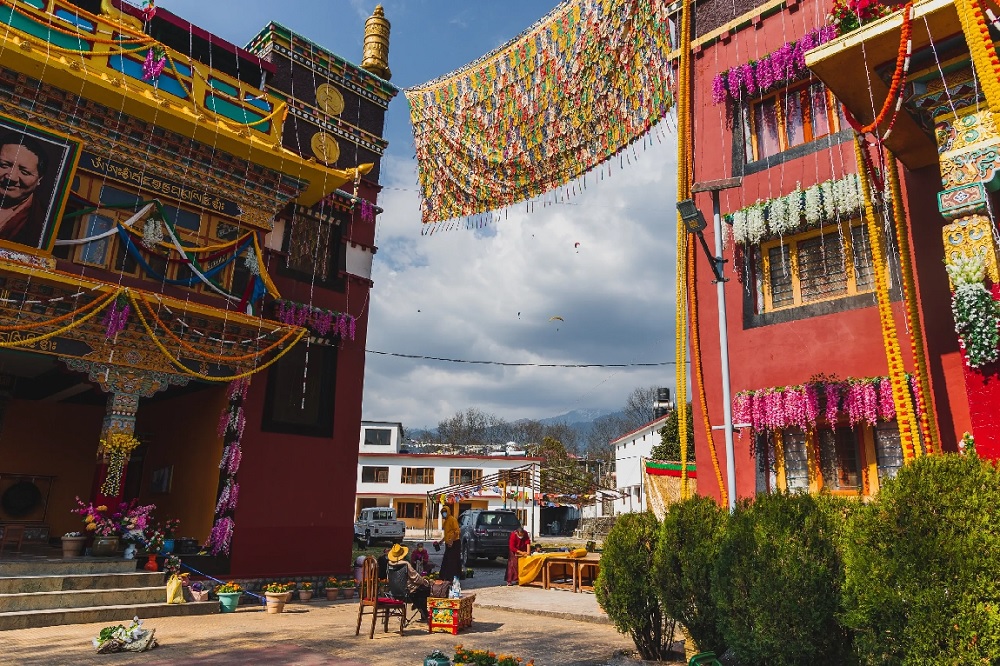

The Bir Tibetan Colony is a small village located in the Kangra District of Himachal Pradesh, India. Initially, the area was not well-known as a tourism destination. It emerged slowly, starting in the 1960s, when a group of Tibetan refugees settled in Bir following the Chinese invasion of Tibet. The place gradually obtained its present identity as the Bir Tibetan Colony.
Over the years, the scenic beauty, serene monasteries, and vivid culture of the Tibetan community attracted both domestic and international visitors. The foothills of the Indian Himalayas offer an appealing retreat for those looking to escape the bustle of city life.
Bir Billing gained international recognition for paragliding. It was the hosting venue for the Paragliding World Cup in 2015, which significantly boosted its reputation. Since then, it has been known as one of the best paragliding sites in the world. This has transformed the tourism landscape of Bir, drawing adventure enthusiasts from all over the globe.
The mix of Indian, Tibetan, and Buddhist cultures has made the area culturally rich. Bir is home to several Buddhist monasteries and institutes, which are central to the town’s spiritual and cultural life. This multicultural aspect has become a significant point of interest for tourists seeking both spiritual growth and cultural immersion.
Alongside its cultural offerings, Bir has also established itself as a destination for ecotourism. With its lush landscapes and focus on sustainable living, visitors are drawn to this area for organic farming tours, nature walks, and eco-friendly accommodation options.
The latest trends in tourism in Bir Tibetan Colony include a surge in wellness tourism. Travelers are seeking experiences like yoga retreats, meditation sessions, and holistic health treatments which are readily available in Bir.
The region has also seen a growth in the homestay segment, where tourists prefer to stay with local families to experience the local customs and traditions firsthand. This supports the local economy and promotes sustainable tourism practices.
Adventure tourism continues to thrive with increased interest in mountain biking, trekking, and camping in addition to the already popular paragliding.
Tourism has emerged as a vital part of the economy in Bir Tibetan Colony. It provides employment opportunities and is a significant source of income for the local population. The influx of tourists fuels the hospitality and service sectors, encouraging further infrastructure development in the region.
Artisanal craftsmanship and local products also receive broader exposure through tourism, allowing for the preservation of traditional arts and an additional stream of income for these artisans.
In conclusion, the Bir Tibetan Colony in Bir Billing, Himachal Pradesh, has transcended its humble beginnings to become a world-class destination for those seeking adventure, spiritual enrichment, and cultural experiences. Its growth and development within the tourism industry continue to benefit the local community while offering unforgettable experiences to visitors from around the world.